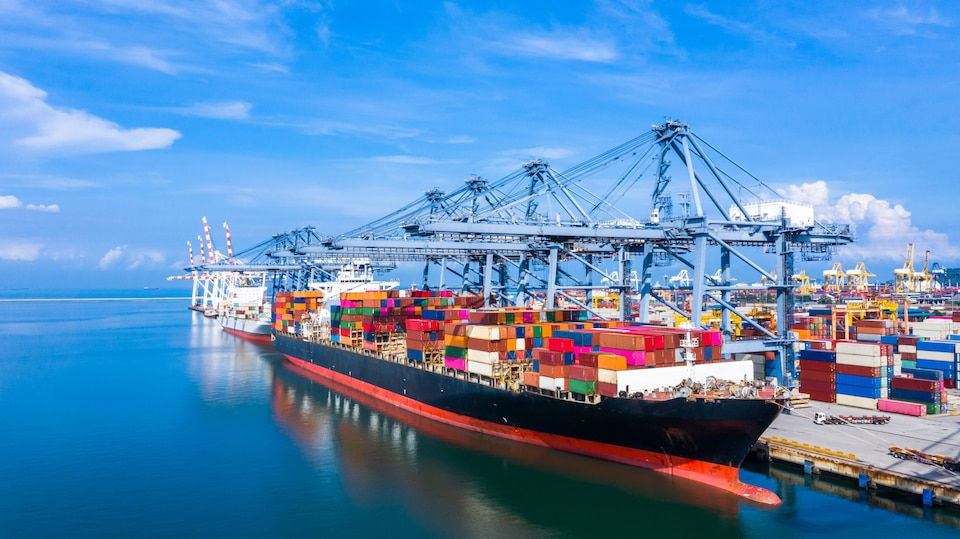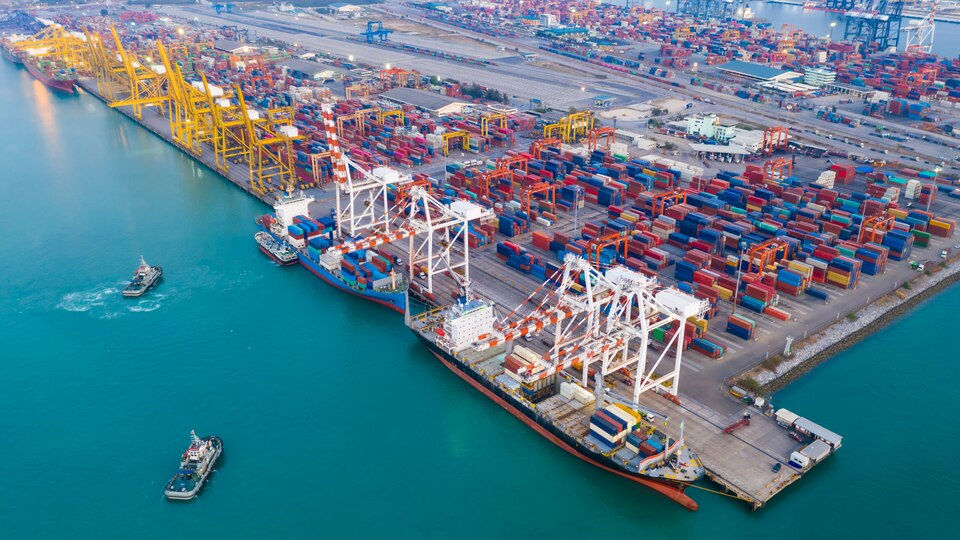Seaports play a key role in transporting goods and are considered an important gateway to the economy. They play an important role in the process of loading, unloading, transporting and circulating goods from many different parts of the world. In this article, Nam Hai Dinh Vu Port shares about the importance of seaports, especially in the modern era with the strong development of international trade.
Seaports and their role in cargo transportation activities
A seaport is defined as a part of important infrastructure, acting as an international transaction center in the field of goods transportation. At the seaport, the goods are unloaded from the ship and then stored, processed, loaded, packaged, and shipped to various destinations around the globe. As the “gateway” of international trade, seaports play an extremely important role in goods transportation activities. Using seaports helps reduce transportation time and costs, while improving flexibility and efficiency in goods management. Seaport services such as storage, loading, unloading, packaging and other logistics services also play an important role in the goods transportation process. In addition, large seaports also contribute significantly to local and national economic development, providing jobs for thousands of people and creating new business opportunities for businesses. In cargo transportation activities, the use of seaports is extremely important to ensure the integrity and safety of goods. Choosing the right seaport and effectively utilizing it is extremely important to help businesses optimize their operations and meet customer needs.

Technology and Innovation in Seaport Management
The application of modern technology and smart management processes has helped improve the productivity and efficiency of seaports. From smart management systems to automated cargo handling, technology is changing the way we manage seaports.
The Impact of Seaports on the Economy
Seaports are not only places to trade goods but also have a profound impact on the global economy. They create employment opportunities, increase trade, and promote a country’s economic development.
Environmental Management at Seaports
With large scale and continuous operation, seaports face challenges in environmental protection. Environmental management measures at seaports are increasingly focused on minimizing negative impacts on the marine ecosystem.
The Future of Seaports and Development Trends
Modern trends are moving towards automation, artificial intelligence applications and smart port development. Continuous innovation and progress are changing the face of future seaports.
Conclude
Above is an overview of the important role of seaports in cargo transportation activities. They are not simply transportation infrastructure but also the heart of the global economy.
FAQs
1. What role does seaports play in international trade?
Seaports are important centers of international trade activities, helping to connect and transport goods between countries.
2. What technology is driving the development of seaports?
Information technology, automation and artificial intelligence play an important role in improving seaport management efficiency.
3. How to manage the environment at seaports?
Environmental management at seaports includes the application of green technology and measures to reduce pollution during operations.
4. What will the future of seaports look like?
The future of seaports points towards advanced automation and the application of smart technology to optimize cargo transportation processes.
5. How does the seaport affect the economy?
Seaports create employment opportunities, promote trade activities and contribute positively to the economic development of a country.
Thus, with an important role and broad influence on cargo transportation, seaports are not only an infrastructure but also an important driving force promoting global economic development.





